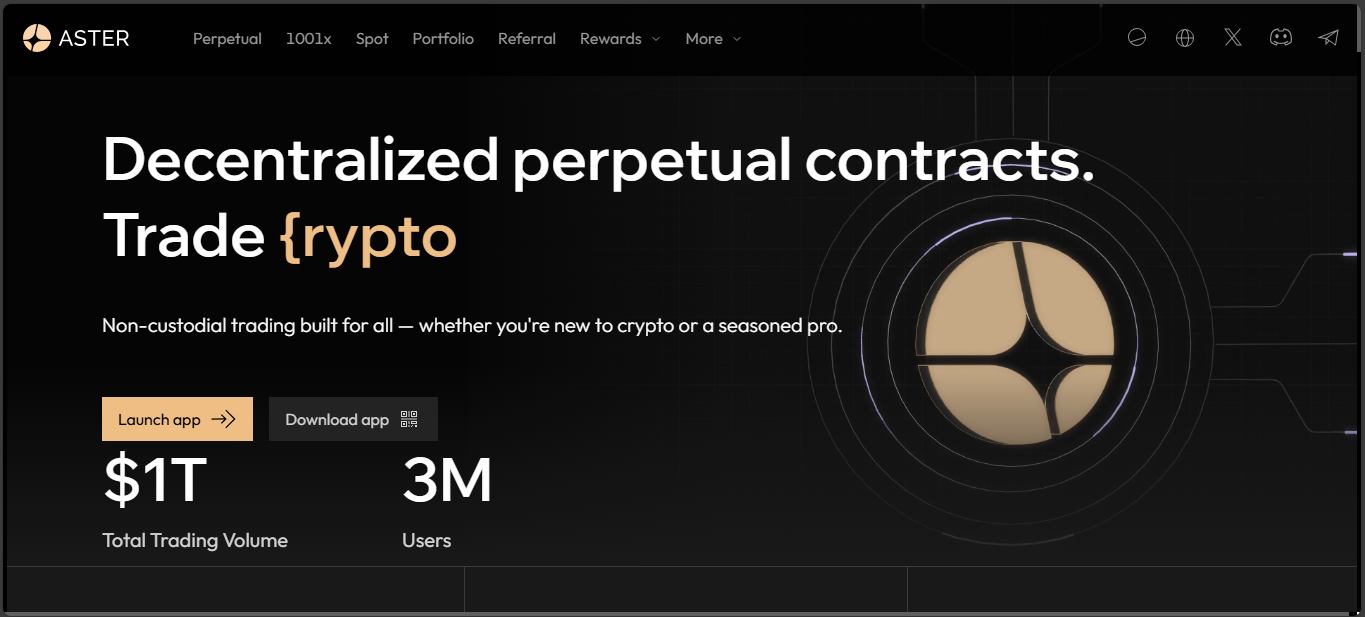ApolloX – Exchange Review

ApolloX emerged in 2021 as one of the first exchanges to combine centralized and decentralized models into a single platform – delivering both a traditional order-book CEX and an on-chain DEX experience. It supports spot, futures, perpetuals and leverages the APX token to fuel its ecosystem.
Dual Identity: CEX Meets DEX
ApolloX started as a hybrid platform, offering CEX trading with deep order-book liquidity and centralized matching engines, while also running a decentralized perpetuals DEX. Users could choose either route, combining reliability with autonomy.
From late 2022, the centralized CEX side was phased out and the focus moved to the fully on-chain DEX version. It’s a shift toward decentralized trust with full user control, but still retains the high-performance design of its CEX roots.
Perpetuals – Order-Book and On-Chain Options
ApolloX provides two perpetual trading models. The traditional order-book style caters to users seeking precision and familiarity. The on-chain version brings high leverage – up to 100x – and minimal slippage, along with optional hedge mode that lets traders simultaneously hold long and short contracts in the same pair. It’s powerful, flexible and wallet-native.
Token Perks – APX Amplifies the Experience
APX is the native utility token – powering governance, fee discounts, staking, reward programs and referral programs. Holders enjoy bonuses that go beyond standard token utilities, including yield from liquidity provision and staking pools.
Cross-Chain Reach and Chain Support
ApolloX isn’t limited to one network. Its DEX infrastructure spans key chains like BNB Chain, Arbitrum, zkSync, Base and others. That allows scalable, low-fee trading and cross-chain perpetual markets, making it accessible from multiple DeFi ecosystems.
Fees, Volume and Ecosystem Moves
Maker and taker fees sit around 0.02% and 0.07% – competitive with major platforms. Deposit is typically free, while withdrawal fees vary by network. Once active, the platform shows modest activity with around 81 coins and over 100 trading pairs, yet recent trackers flag 24-hour volume as zero – suggesting low or dormant current usage.
The ecosystem includes ALP liquidity pools, APX staking options, NFT lotteries, plus mobile apps and referral incentives. It’s built to feel alive – even if traffic is currently light.
Strengths & Weaknesses at a Glance
Strengths:
- Hybrid system blending centralized order-book strength with decentralized DEX control
- Dual perpetual engines: order-book fidelity plus on-chain leverage and hedge
- APX token drives loyalty, governance and ecosystem benefits
- Broad chain support makes it multi-chain adaptable
- Advanced features such as hedge mode, staking, lotteries and referrals
Weaknesses:
- Current volume and liquidity appear low – platform feels inactive or in pause state
- Shift from CEX to DEX may unsettle users who prefer centralized models
- Complexity and multiple components may overwhelm casual traders
- Reliance on APX token ties incentives tightly to ecosystem insiders rather than broad utility
Final Thoughts
ApolloX stands as one of the most daring hybrid exchange experiments – combining the best of both worlds with CEX order books and on-chain perpetuals. Its token incentives and feature suite are deep, and its cross-chain design promises real flexibility.
If you’re a power user or advanced DeFi trader ready to chase innovation, ApolloX offers tools and governance that reward engagement. Just note – the platform’s activity currently looks muted, and bridging between models may take time. For now ApolloX feels like a high-potential sleeper – built for a comeback.
Disclaimer
“This content is for informational purposes only and does not constitute financial advice. Please do your own research before investing.”






